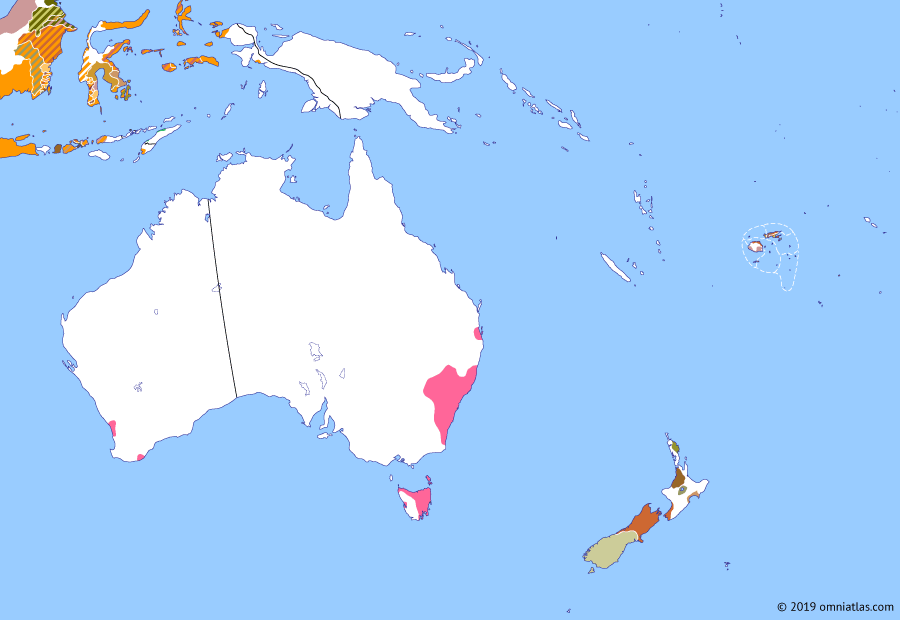Australasia 1832: Musket Wars
1 June 1832
1 Jun 1832
Musket Wars
26 Jan 1788 First Fleet
28 Apr 1789 Mutiny on the Bounty
7 Feb 1794 Australasia and the French Revolution
23 Jul 1801 Napoleonic France in Australasia
17 Oct 1803 Expanding from New South Wales
26 Jan 1808 Rum Rebellion
18 Feb 1811 Interregnum in the Dutch East Indies
7 May 1815 Settling the Australian interior
29 Feb 1820 Australasia after the Napoleonic Wars
3 Dec 1825 Colony of Van Diemen’s Land
18 Jun 1829 Swan River Colony
1 Jun 1832 Musket Wars
28 Dec 1836 Province of South Australia
6 Feb 1840 Treaty of Waitangi
16 Nov 1840 Colony of New Zealand
17 Feb 1846 Colony of North Australia
30 Aug 1849 Settlement of the South Island
1 Jul 1851 Colony of Victoria
3 Dec 1854 Eureka Rebellion
1 Sep 1855 Tongan Intervention in Fiji
6 Jun 1859 Colony of Queensland
The arrival of muskets and other European goods in the early 19th century disrupted the power balance between the already fractious Māori tribes of New Zealand. The populous northern tribes of Ngāpuhi and, some years later, Waikato mounted raids across the North Island, driving smaller tribes to seek refuge in the south. In the 1820s the Ngāti Toa chief Te Rauparaha formed an alliance of these refugee tribes, leading them on to invade the South Island in 1829–32. Tribal infighting prevented substantial long-term conquests, although, by depopulating key locations, the wars opened up New Zealand for later European settlement.
